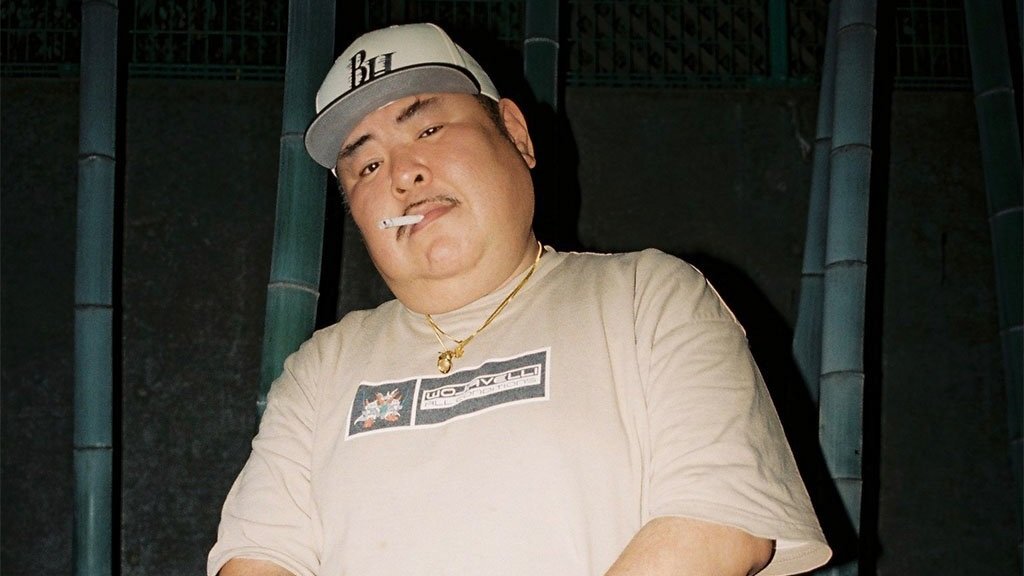ANTONIO INOKI - CHIMERICAL LEGEND WHO SLAPPED PURPOSE IN HUNDREDS

Chimerical legend Antonio Inoki is said to have slapped over 20,000 people in his lifetime. On New Year's day, his Toukon (Fighting spirit) tradition conjured a line of 100 including fans, idols, and celebrities. He gently rests his fist on the center of the chest, instating presence through pause. His power-call “DA!” follows a ‘Binta,’ aka Slap that fills you with a spirit of motivation (やるき). A young man claimed he passed his college entrance exam after the blazing Toukon.
Famously recognized for his Pro-wrestling status, Inoki’s success extended far beyond the wrestling ring and into the souls of thousands. His life’s objective was : Bring Peace to the world through sports.(スポーツを通じて世界に平和をもたらす).
Small gestures go a long way when repeated overtime, and shouts of encouragement were one of his trademarks. GENKI DESUKA! ‘Genki’ translates to energy. Meaning,“How are you doing?” This casual phrase lit up every room he attended. He took uplifting people so seriously, he was once lacerated in the ear during a speech and continued on for 10 minutes despite having to bear 10 stitches. The very next day, people reported his break but Inoki showed up to a children's sports day he had organized with gauze on ear, smile on face.
What made Inoki so powerful? It was his nature to readily accept any challenge. And this boils down to an attitude to perceive the impossible as possible and truly believing it. This action delivers results to an objective.
Born in 1943 in Yokohama, Japan, during World War II, he was the second youngest of 11 siblings. To escape the hardships, including the loss of his father at age 5, the family migrated to Brazil. Led by his older brother, Inoki sublimated to sports, becoming Brazil’s national star in shot put and discus throw by the age of 17. During this time, Rikidozan, known as the godfather of Japanese wrestling, took Inoki as a disciple and brought him back to Japan when he was 20 years old. He endured brutal training like being forced off of a ship to swim an hour back to Tokyo with nothing but stamina as a life gear .
Inoki’s trademarks came in the form of body, sound, and accessory. It wasn’t just his macho figure, but his protruding chin that was widely recognized to his character. Almost a born symbol to his determination sprouting inward and out, there are visual references in iconic manga series like キン肉マン (kinnniku Mann) and グラップラー刃牙 (Baki the grappler). Red, a color of power, draped around his neck ‘red Toukon towel’ (Fighting Spirit Towel) throughout his wrestling career. Following his political career, the towel transitioned into a red scarf to match the suit attire.
What brought him global attention was a MMA cross martial arts match in 1976, against Muhammad Ali. Rules were uncertain when placing a pro-boxer and pro-wrestler together. Inoki was restricted to fighting with his back to the floor, limited to swinging kicks at Ali’s shins. The cross-promotional event came to an underwhelming draw which received a ton of backlash, but global publicity was key in his objective for Peace. He used his fame as a tactic to draw attention to sports, aiming to bridge divisions and power dynamics between countries. He then ran as Japan’s house of council for 12 years, successfully negotiating with Saddam Hussein to release 41 Japanese hostages from Iraq.
In April of 1995, Inoki organized an International Sport and Peace festival in North Korea, totaling 355,000 attendees over the course of 2 days. In the same year, he flew to visit Cuban revolutionary, Fidel Castro. As a joke, he was convinced to buy some land; naming it “Friendship Island.” His graceful charisma was so authentic, he had no enemy.
60 and donning his vibrant swimming briefs, Inoki takes a dive in the Amazonian river filled with Piranha’s. The local Brazilian fisherman yell at him to retreat back on board, but he showed relaxation towards the place which used to be his home. Refreshed and smiling, he replies to the calamity of others with: “To be the inkling of unconventional thinking is what puts you outside of conformity. I hope doing so instills inspiration to dream in others. Making others happy is what brings me joy.” 枠にハマらない一ミリの非常識,はみ出した部分が皆さんに夢を送れるんじゃないかな。人に喜んでもらうのが俺にとって嬉しいんです。
Although he departed this world in 2022, he taught us that our world is shaped by our own belief systems. In a society where conventional thinking dominates, Antonio Inoki left a blazing legacy-for some on their cheeks -that challenges us to transcend our beliefs about our own capabilities.
words by Mizu Matsuura









